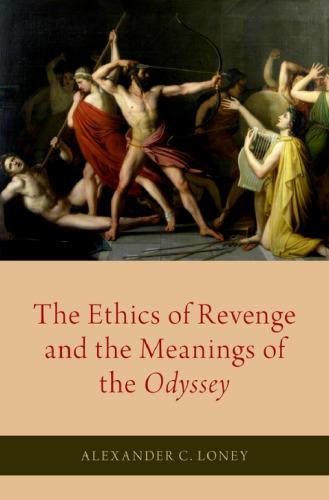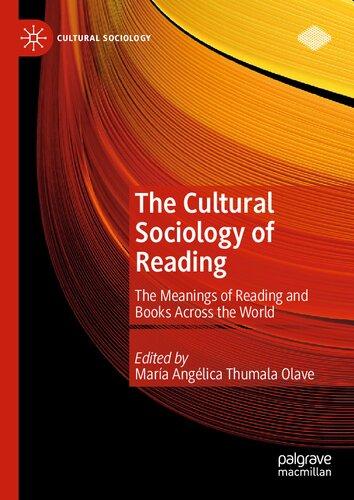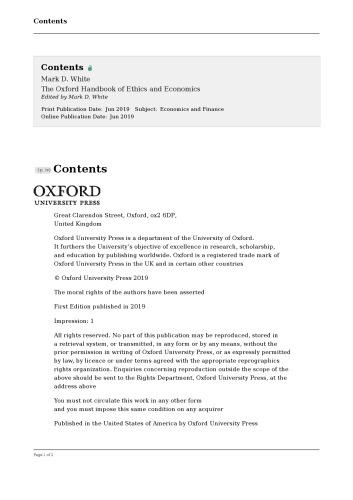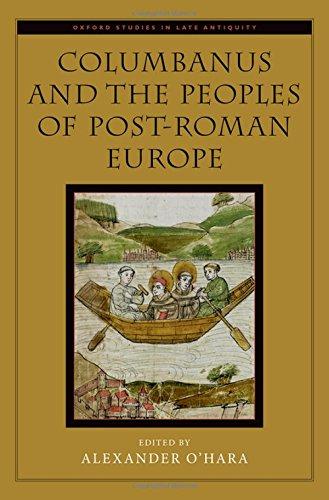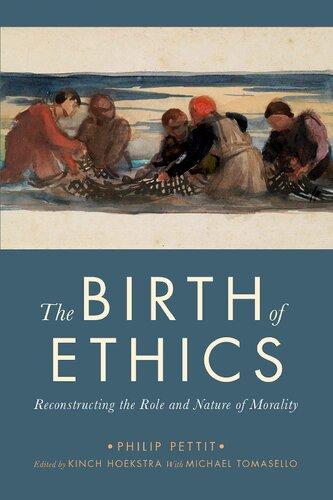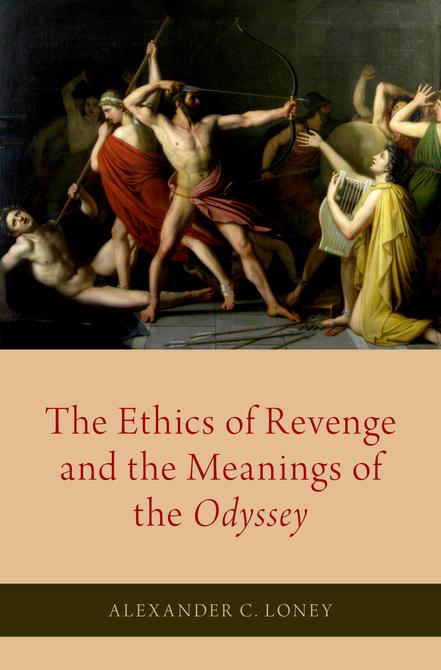The Ethics of Revenge and the Meanings of the Odyssey z
ALEXANDER C. LONEY
Oxford University Press is a department of the University of Oxford. It furthers the University’s objective of excellence in research, scholarship, and education by publishing worldwide. Oxford is a registered trade mark of Oxford University Press in the UK and certain other countries.
Published in the United States of America by Oxford University Press 198 Madison Avenue, New York, NY 10016, United States of America.
© Oxford University Press 2019
All rights reserved. No part of this publication may be reproduced, stored in a retrieval system, or transmitted, in any form or by any means, without the prior permission in writing of Oxford University Press, or as expressly permitted by law, by license, or under terms agreed with the appropriate reproduction rights organization. Inquiries concerning reproduction outside the scope of the above should be sent to the Rights Department, Oxford University Press, at the address above.
You must not circulate this work in any other form and you must impose this same condition on any acquirer.
CIP data is on file at the Library of Congress
ISBN 978–0–19–090967–3
Printed by Sheridan Books, Inc., United States of America
To Emily
Preface
I benefited from the careful and judicious help of many in bringing this book to its telos. From its first conception to publication, this book has taken nearly as long to complete as Odysseus’ journey home. Along the way, I have benefited from the advice and criticism of so many that I am sure to forget to name some of them here. Please forgive the oversight. Before listing all those who are to be thanked, I must say, as is customary, that none can be blamed for any shortcomings or errors in the book.
In the very early stages of this project’s development, José González was a tireless sounding board, patiently listening to me try out various disconnected threads of different ideas. Later, as I gave to him in quick succession lengthy drafts of chapters, he would promptly turn each of them around with detailed, careful comments. I would also like to thank the incisive, critical reading that early versions of the project received by Peter Burian, Carla Antonaccio, and William Johnson. While at Duke University, my initial work was supported by the Franklin Humanities Institute as well as the Kenan Institute for Ethics. Various parts of this project have had other patient readers and auditors in its earlier stages: Diskin Clay, Casey Dué, Douglas Olson, Paul Griffiths, Jenny Strauss Clay, Ruth Scodel, Kirk Ormand, Gregory Nagy, Ornella Rossi, Irene Peirano. In its more advanced stages, Egbert Bakker, Pauline LeVen, Victor Bers, Douglas Cairns, David Elmer, Erwin Cook, Jonathan Ready, Ryan Kemp, Mark Jonas, Matthew Farrelly, and the participants of MACTe read or heard portions of the project and helped—some in very small ways, others quite significantly—to improve the final product. At a crucial, late stage in the revision process, I received some much-needed help from Justin Arft and Tobias Myers. Joel Christensen and Lilah Grace Canevaro kindly shared with me pre-publication versions of their new work. Portions of the work were also heard by audiences at Xavier University, the University of Wisconsin–Madison, the University of St Andrews, Yale University, the University of California–Santa Barbara, Brigham Young University, and Wheaton College, as well as at meetings of the Society for Classical Studies, the Classical Association of the Middle West and South, the Classical Association of
Preface
the Atlantic States, and the Association of Literary Scholars, Critics, and Writers. Wheaton College has supported my writing through a generous grant from the G.W. Aldeen Memorial Fund and by enabling me to hire Jessica Johnson, who has been an enormous help. I also owe thanks to Ramus and its editors, who first published an earlier version of portions of chapters 2 and 5 in my 2015 article, “Eurykleia’s Silence and Odysseus’ Enormity: The Multiple Meanings of Odysseus’ Triumphs” (© Aureal Publications 2015, reprinted with permission). I especially want also to thank the anonymous readers of this manuscript. I am deeply indebted to them. On account of their anonymity, their careful work on my behalf can never be reciprocated directly. My gratitude can only find some, limited expression in the similar work I shall feel forever obliged to do on behalf of other writers. Special thanks are owed to H. Don Cameron for first spurring my love for the Odyssey.
Wheaton, July 2018
Ameis-Hentze- Cauer
Danek
Crawford
Abbreviations
Ameis, Karl Friedrich, Karl Hentze, and Paul Cauer. 1908–1911. Homers Odyssee. Leipzig: B. G. Teubner.
Danek, Georg. 1998. Epos und Zitat: Studien zu den Quellen der Odyssee. Vienna: Österreichische Akademie der Wissenschaften.
Crawford, Michael H. 1996. Roman Statutes. Bulletin of the Institute of Classical Studies Supplement 64. London: Institute of Classical Studies, School of Advanced Study, University of London.
de Jong de Jong, Irene J. F. 2001. A Narratological Commentary on the Odyssey. Cambridge: Cambridge University Press.
DELG
GEW
Chantraine, P. B. A. and C. d. P. J. L. Lamberterie. 1999. Dictionnaire étymologique de la langue grecque: Histoire des mots. Paris: Klincksieck.
Frisk, Hjalmar. 1960. Griechisches etymologisches Wörterbuch. Heidelberg: C. Winter.
Heubeck et al. Heubeck, Alfred, Stephanie West, J. B. Hainsworth, Arie Hoekstra, Joseph Russo, and Manuel FernándezGaliano. 1988–1992. A Commentary on Homer’s Odyssey. 3 vols. Oxford: Clarendon Press.
IC Guarducci, M. 1935–50. Inscriptiones Creticae opera et consilio Friederici Halbherr collectae, I–IV. Roma: Libreria dello Stato.
IG I3
IG XII.9
Lewis, David and Lilian Jeffery. 1981, 1994. Inscriptiones Graecae I: Inscriptiones Atticae Euclidis anno anteriores. 3rd ed. Berlin: De Gruyter.
Ziebarth, Erich. 1915. Inscriptiones Graecae XII, fasc. 9: Inscriptiones Euboeae insulae. Berlin: De Gruyter.
Abbreviations
Kirk et al. Kirk, G. S., Mark W. Edwards, Richard Janko, John B. Hainsworth, and Nicholas J. Richardson. 1985–1993. The Iliad: A Commentary. 6 vols. Cambridge: Cambridge University Press.
LfgrE Snell, Bruno and Hans Joachim Mette. 1955–2011. Lexikon des frühgriechischen Epos. Göttingen: Vandenhoek & Ruprecht.
LSAG Jeffery, L. H. 1961. The Local Scripts of Archaic Greece. Rev. ed. with a supplement by A. W. Johnston. Oxford: Oxford University Press, 1990.
Merry-Riddell-Monro Merry, W. Walter, James Riddell, and D. B. Monro. D. B. 1886–1901. Homer’s Odyssey. Oxford: Clarendon Press.
Stanford Stanford, W. B. 1947–1948. Homer: Odyssey. 2 vols. Reprint of 2nd ed. London: Bristol Classical Press, 1996.
van Effenterre and Ruzé van Effenterre, Henri and Françoise Ruzé. 1994–1995. Nomima: Recueil d’inscriptions politiques et juridiques de l’archaïsme grec. 2 vols. Roma: École Française de Rome.
The abbreviations used in this volume for journals and book series follow the conventions of the American Journal of Archaeology and L’Année philologique. The abbreviations for ancient texts follow The Oxford Classical Dictionary, 4th edition (2012). For Mycenean texts, I follow Bennett and Olivier (1976) and Chadwick et al. (1986–98).
The Ethics of Revenge and the Meanings of the Odyssey
Introduction
After more than 12,000 lines of epic narrative, moments from its end, the Odyssey is poised to undo itself, to erase (at least on Ithaca) the story of Odysseus’ triumphant return and, by implication, even his involvement in the Trojan War. Faced with the threat of “further destructive warfare and dire din of battle” (
, 24.475) because the kin of the suitors whom Odysseus has slain have assembled and are determined on vengeance, Zeus institutes a general amnesia. He promises “a forgetting of the slaying of their sons and brothers” (παίδων
, 484–85). The reach of this act of forgetting is far broader than might be expected. The victims of the slaughter-to-be-forgotten include not only the suitors just killed in Odysseus’ household, but must also include all the men who left with Odysseus for Troy twenty years ago—none of whom returned. Eupeithes, the main proponent of vengeance upon Odysseus and his party, had cited the loss of both groups in his indictment of Odysseus (426–29):
Friends, this man plotted a great deed against the Achaians. Some, many and good ones, he took off with ships.
He lost the hollow ships; he utterly lost the men.
Some, by far the best of the Cephallenians, he killed when he came back.1
1. Unless otherwise noted, I follow von der Mühll’s (1962) Greek text of the Odyssey and Allen’s (1931) of the Iliad. All translations of ancient and modern texts are my own, unless otherwise indicated.
Eupeithes considers these two groups of men—balanced against each other with τοὺς μέν and τούς δ’—equivalent for the purpose of condemning Odysseus. In an important sense, whether or not Odysseus is culpable for the deaths of all these men—those he “lost” (ἀπό ὤλεσε) and those he “slew” (ἔκτεινε)—no longer matters once Eupeithes has succeeded in mobilizing an armed force against him. No matter the right of it, further violence appears inevitable.
This recalls a much earlier scene in which Aigyptios, one of the old men whose sons had left with Odysseus for Troy twenty years earlier, also gives the opening speech of an assembly of Ithacans. Aigyptios is agonized in much the same way as Eupeithes over the loss of a son—only in Aigyptios’ case, his son’s death is unconfirmed. The poet aligns these two aggrieved fathers by using similar diction to introduce their speeches. Consider, first, how Eupeithes is introduced as deeply upset over the slaughter of his son Antinoös (24.422–25):
Eupeithes stood up and spoke among them.
For in his heart lay an unforgettable grief for his son Antinoös, whom noble Odysseus slew first.
Shedding a tear for him, he spoke and addressed them 425
Aigyptios is similarly upset over a son whom, as the poet informs us, Polyphemos killed (2.15–24):
To them, then, the hero Aigyptios was the first to speak. 15 He was bent with old age and knew very many things. For his dear son, with god-like Odysseus,
went to fine-foaled Ilium on hollow ships.
Antiphos the spearman, he was, whom the wild Cyclops slew in a hollow cave and made his last meal.
He had three other sons. One kept the company of the suitors— Eurynomos. Two were always at the ancestral fieldwork. But he had not thus forgotten him, bewailing and mourning him.
Shedding a tear for him, he spoke and addressed them.
20
The poet refers to the violent deaths of these sons in structurally parallel lines: X whom . . . Y killed (Ἀντινόου/Ἄντιφος τόν . . . ἐνήρατο/ἔκτανε . . . Ὀδυσσεύς/Κύκλωψ, 24.424/2.19). There are also parallels of context between these two speeches: two grieving fathers lament sons killed in the company of Odysseus; both died during meals (the suitors’ own/Polyphemos’) in another’s home. Narrative context and especially the similarities of diction between 24.424 and 2.19 suggest a startling alignment that will be slowly revealed as the poem progresses, becoming, as we shall see, most explicit in the aftermath of the slaughter of the suitors—namely, an alignment between Polyphemos and Odysseus, who are here made comparable as agents of the sons’ deaths. This bit of background about Antiphos, especially the detail of his death, has troubled some commentators, because it interposes information unknown to Aigyptios.2 There is, however, no factual contradiction between this brief mention of his death and the way Odysseus tells it in Book 9. The poet’s choice to include this detail adds pathetic irony to the speech and, of more interest to the point at hand, emphasizes a connection between Odysseus and Polyphemos that none of the characters yet appreciates. We might have expected the poet to align Antiphos with Odysseus, both long unaccounted for after departing together on the expedition to Troy. And a detail in line 20 brings the connection to the fore: Antiphos was Polyphemos’ “last meal” (πύματον . . . δόρπον). This anticipates Polyphemos’ promise, “No-man”—i.e., Odysseus—“I will eat last” (“Οὖτιν ἐγὼ πύματον ἔδομαι, 9.369). As events unfold, Polyphemos never fulfills his promise. (Or, in an ironic sense, he does fulfill it, if we hear in his threat a statement that “no one” [οὔτιν”] of the party of Greeks will be a last meal.) Instead of drawing Odysseus and Antiphos together, the resonance between these lines heightens the difference in their situations. If Antiphos is Polyphemos’ last meal, Odysseus will not be. Antiphos will take Odysseus’ place in the belly of the Cyclops. Does Odysseus have any blame in this? Right from the beginning, the poet raises the question of whether Odysseus is responsible for the deaths of the
2. See Heubeck in Heubeck et al. 130.
companions—though the proem explicitly denies it: “But even so he could not protect his companions, though he longed to” (ἀλλ’ οὐδ’ ὧς ἑτάρους ἐρρύσατο, ἱέμενός περ, 1.6). But this question does not disappear. The belief that Odysseus is at fault for the deaths of the companions, as well as for the deaths of the suitors, will find voice near the end of the poem, when Eupeithes explicitly equates the consequences of Odysseus’ leadership of the Ithacan expedition to Troy with his slaughter of the suitors: both actions result in an entire group of young Ithacan men dying.
The parallels between these two speeches go deeper.3 Both fathers are moved by an unforgettable grief over their lost sons (παιδός . . .
’, 24.423/2.23). The poet makes the identification of these two situations complete by using here (and, significantly, nowhere else) an essentially identical line to introduce their direct speeches (4.425/2.24). Indeed, Aigyptios’ weeping seems slightly out of place at this moment. He is mourning for Antiphos, but Antiphos’ absence is hardly new. Within the logic of the narrative, it would seem to be that Telemachos, arriving at the assembly like his father and taking his father’s seat (2.14), reminds Aigyptios of Odysseus and the son he has lost to Odysseus’ expedition. The scale and acuteness of Aigyptios’ grief seems inappropriate to the moment. As such, this is an example of the “pregnant tears” device: a character weeps out of proportion to the apparent cause and thereby ironically alludes to a more serious cause of his or her grief.4 Aigyptios’ present tears foreshadow his greater calamity to come. Twenty years after the Ithacan force left for Troy, Aigyptios is still hoping for “some word of the travelling army” (τιν’
, 2.30).5 Ignorant as he is of Antiphos’ gruesome
3. A few scholars have briefly noted the structural and thematic connections between these two speeches: among others, Heubeck (1954) 39, Nagler (1990) 343 n. 23, Barker (2009) 109, Grethlein (2017) 213, 252. However, the full implications of connecting these two speeches have not been appreciated.
4. See the recent discussion by Currie (2016) 105–46. About Andromache’s and Astyanax’s emotional reactions in Iliad 6, he writes: “The intensity of the characters’ emotions imbues the scene with special importance, more than it would otherwise be felt to have. The pregnancy of these tears creates something like the . . . ‘interpretative gap’ or ‘tension’ in the narrative that is associated with metaphor and allusion. Because the tears seem more than the immediate situation warrants, they point the audience to another situation that is implicit in the actual narrative situation . . .” (112). Thetis’ and the Nereids’ tears for Patroklos in Iliad 18 is another classic example, well-known in the work of neoanalysis, beginning with Kakridis (1949) 65–75.
5. There is some dispute on the meaning of this phrase. Is it the threat of an invading foreign army or word of Odysseus’ army? The scholia give both interpretations. With Ameis-HentzeCauer ad 2.17 and de Jong ad 2.15–37, I prefer the latter. The line with a form of the participle ἐρχόμενος that most closely matches this line explicitly refers to Odysseus: “Or does he bring some word of your travelling father?” (ἠέ
1.408).
end as a meal for Polyphemos, he imagines that perhaps Antiphos may yet return. His failure (or unwillingness) to forget is like Penelope’s at the opening of the poem, who too is possessed by an “unforgettable grief” (πένθος ἄλαστον, 1.342) and “long[s]” (ποθέω, 343) for Odysseus, “ever remembering” (μεμνημένη αἰεί, 343) him. The poet will not mention Aigyptios again after this scene in Book 2. But we can infer how he might have reacted to the events that followed. We know that no reliable news of the missing men who went with Odysseus reaches the island (cf. the false reports mentioned at 14.121–32). Odysseus arrives and kills the suitors with such stealth that we can assume Aigyptios will only learn of the fate of those men when the story of the slaughter in Odysseus’ household reaches him. He will realize all at once that, not one, but two of his sons are now dead. Not only has Odysseus slain his son Eurynomos with the other suitors, but also, since Odysseus returned alone and defeated them on his own, any lingering hope that his other son Antiphos might be alive is gone.
At this juncture, a moment of Iliadic pathos intrudes upon the Odyssey: Aigyptios’ fate recalls the Iliad’s motif of the two sons of an aged father whom a Greek warrior kills in his aristeia, leaving their father doubly bereaved.6 The case of Phainops makes for an acute parallel. Diomedes attacks his two sons (Il. 5.152–58):
Then he went after Xanthos and Thoön, the sons of Phainops, both dear. Their father was worn out by miserable old age and did not beget another son to leave in charge of his possessions. Then he slew them and took away the dear spirit 155 of both. To their father, lamentation and baneful cares he left, since he welcomed them not alive on their return from the battle. Distant relatives divided up his estate.
Like Aigyptios, who is “bent by old age” (γήραϊ κυφός, Od. 2.16), Phainops too is “worn out by miserable old age.” With the special encouragement and aid of
6. See Il. 5.144–65, 11.92–147, 320–35.
Athena, much as Odysseus will have in his battle with the suitors, Diomedes kills “both” (ἄμφω) Phainops’ “dear sons.” The poet again underscores the doubleness of Phainops’ misery by mentioning that these were his only sons and repeating, with the pronoun strongly marked by enjambment, that they “both” (ἀμφοτέρω) died. As the subject of the verb λεῖπ’ (in a pathetic contrast to λιπέσθαι), Diomedes is emphatically the agent who brings grief to Phainops. The poet is telescoping the distance between the battlefield before Troy and the domestic sphere, as if Diomedes is reaching through to Phainops’ home and afflicting him with “lamentation and baneful cares.” The added details that Phainops’ sons will “return not alive from the battle” and that his estate will be divided up bring home the consequences of the battle. The Odyssey presents in the figure of Aigyptios (though he has two more sons) just such an aggrieved father—this time, a Greek—in his own homeland. When Odysseus strikes down Eurynomos in Book 22, it will be in a domestic space. There will be no distance between the battlefield and the home. These parallels between Phainops and Aigyptios, who share in the motif of a father twice bereaved, deepen the impression that Odysseus, like Diomedes, is the real (and possibly culpable) force in the deaths of Antiphos and Eurynomos.
Telemachos had told Penelope it was some comfort that Odysseus was not the only hero who failed to return, that many others had perished too: “for Odysseus did not alone lose the day of his return . . .” (οὐ γὰρ Ὀδυσσεὺς οἶος ἀπώλεσε νόστιμον ἦμαρ, Od. 1.354). This Homeric truism that the additional deaths of others are a consolation fails in a quite precise way for Aigyptios (and other Ithacans like him): Odysseus does return alone, and so Aigyptios cannot commiserate with Odysseus’ family, as he had in Book 2.7 The somewhat lengthy introduction to Aigyptios’ speech, with its mention of both Antiphos and Eurynomos, anticipates the coming double blow of his two sons’ deaths. And his speech adds a degree of ironic pathos, since he prays that “Zeus would accomplish some good” for Telemachos (Ζεὺς ἀγαθὸν τελέσειεν, 2.34). His prayer is fulfilled—to his own great misfortune. The poet confirms the foreshadowed death of Aigyptios’ son in Odysseus’ general battle with the suitors (22.242).8
7. On this truism, which is rooted in a sense of common suffering and doom of all mortals, see Griffin (1980) 185, de Jong ad 1.345–59, Versnel (2011) 158.
8. Eurynomos is mentioned just this one other time at his death. It is striking that Eurynomos gets mentioned at all. (He is one of only fifteen suitors that are given names in the Odyssey.) One function of this is to create a parallel with Eupeithes in Book 24, who occupies a similar structural and ethical position as Aigyptios. We cannot know how Aigyptios reacts to Odysseus’ return and victory over the suitors (and slaying of his other son). The poem is silent. But if we indulge in some speculation, we might imagine, given the parallels between him and
The poet has been preparing for the final confrontation between Odysseus and the kin of the young men he killed since at least as early as the assembly scene in Book 2. As I discuss in chapter 4, the scene showcased an omen of two eagles whose gaze foretold devastation for all assembled. To an even greater extent, Halitherses’ interpretation of that omen made Odysseus a force of destruction— an “evil thing” (κακόν, 2.166)—that would have destructive consequences for “many others also” (πολέσιν δὲ καὶ ἄλλοισιν) besides the suitors.
Now, by bringing together both the suitors and those who died on the Trojan expedition, Eupeithes magnifies his and the other Ithacans’ grievances against Odysseus. His and Aigyptios’ memorious grief requires a commensurate solution. Eupeithes demands vengeance (24.433–36):
For these things are an outrage, even for those to be to learn of, unless indeed we take revenge on the killers of our sons and brothers. For my part, it would not be pleasant in my heart 435 to live; rather, would that I swiftly die and be among the dead.
Zeus has another, different commensurate response to the problem of grief that cannot be forgotten (484–86):
Let us, in turn, establish a forgetting of the slaying of their sons and brothers. And let them love one another 485 as before, and let there be wealth and peace in abundance.
Zeus echoes Eupeithes’ demand of 50 lines earlier, but replaces vengeance with amnesia: “Let us, in turn, establish a forgetting of the slaying of their sons and brothers.”
Eupeithes, Aigyptios joining in Eupeithes’ faction to avenge the deaths of his two sons, and to imagine Odysseus making this sympathetic figure into a foe.
The consequences of this forgetting have been underappreciated. Zeus does not somehow restore the lives of the Ithacans who died—neither those who perished at Troy, nor on Ithaca, nor on the perilous voyage in between. They remain dead. If their deaths must be forgotten, must also their lives?9 Outside Ithaca, Odysseus’ kleos for his feats at Troy abounds, as it will for his killing the suitors.10 But this slaughter is the very action that will be eradicated from memory on Ithaca. While his kleos for these actions will continue to be proclaimed to audiences across time and space through the power of the Muses, on Ithaca the epic of Odysseus’ twenty years of travails and triumphs—that is, the Odyssey must be forgotten.
What brings the poem to this point of (local) self-erasure? Why must the gods intervene to leave Odysseus’ final victory and reestablished reign resting upon a lie? Is this final settlement truly happy? What does it mean for evaluating Odysseus’ character? In this book, I attempt to answer these questions. At this point, however, it will suffice to say that underlying this poem is an organizing principle that demands this radical ending. The Odyssey’s term for this principle is tisis (roughly, “revenge” or “retributive justice”). To be more precise, the poem has a narrative and ideological structure that is best expressed in language by the term tisis (and etymologically related words). Needless to say, revenge is present throughout ancient Greek culture. But the Odyssey has a particular take on it. The object of this book is to analyze this narrative/ideological structure of tisis, as it is presented and used in the poem, and show how crucial it is for interpreting the meaning of the poem. tisis is an essential aspect of more than Odysseus’ victory over the suitors. It structures much of the poem, from Menelaos’ reminiscences on Sparta to Poseidon’s wrath against the Phaiakians. These several cases of tisis resonate with one another and help shape the interpretation of Odysseus’ culminating vengeance against the suitors. In the concluding chapters of this book, the full implications of the Odyssey’s take on tisis will come into view.
9. Perhaps this is to push the implications of the amnesia too far, but how would deleting only the end of their lives, while leaving the gaping void of their unexplained absence, put to rest Eupeithes’ grief over the Ithacans who never returned from Troy? Without these Ithacans to crew his ship, Odysseus could not have sailed to Troy, not have sacked the city, and—having never left in the first place—not have returned and slain his rivals.
10. On Odysseus’ fame among his contemporaries for his involvement in the Trojan War, see 3.83–85, 4.240–89, 8.73–82, 492–520; for his slaying the suitors, see 24.120–202, where the shade of the suitor Amphimedon recounts the slaughter and Agamemnon praises Odysseus and Penelope. The poet of the Odyssey narrates the slaughter in Book 22 as an aristeia in the tradition of heroic epic—a conventional scene of triumph conferring kleos: see Müller (1966) 136–45, Nagy (1979) 35–40, Cook (1995) 152, 164. After his aristeia, although Odysseus tries to restrain the “wide report/fame of the slaughter . . . of the suitors” (κλέος
μνηστήρων, 23.137–38), the rumor of their deaths spreads uncontrollably (24.413–14).
This book is organized roughly in three parts of two chapters each. The first two chapters present the theoretical and methodological groundwork for the analysis of instances of tisis that come in the following chapters. While the first chapter addresses the wider background of tisis in Greek culture, the second chapter presents a narrative model, based on Zeus’ own authoritative account of the vengeance of Orestes, which is operative in the Odyssey. The following two chapters apply this model to other cases of tisis in the Odyssey, with the fourth chapter examining in detail Odysseus’ tisis against suitors. However, it must be observed that the version of Orestes’ myth that Zeus presents is very selective, omitting several complicating details and narrative threads, such as the death of Iphigenia and Orestes’ later sufferings at the hands of the Furies. Any individual narrative of tisis turns out to be much more complicated than Zeus’ story seems to suggest. We will see some indication of that already in the earlier chapters, such as the way Polyphemos and Odysseus can each use narratives of tisis to describe their encounter. But a full examination of the instabilities inherent in tisis comes in the final two chapters. The last chapter in particular deals with the apparent inconclusiveness of Odysseus’ vengeance and the need for the ultimate act of divine intervention—the startling amnesia which terminates both the poem and further cycles of tisis.
I suspect—indeed, I hope—that the results of my study of tisis will surprise some readers. My conclusions—especially about the abrupt, deliberately inconclusive ending of the Odyssey and about the ethical position of Odysseus as an agent of vengeance—are meant to be new and experimental. My goal has been to see how far we might take the different threads of the argument. Some readers, no doubt, will not follow me all the way to the conclusions that I reach. As with any experiment, my effort may not prove an unqualified success. But I hope that, even for the skeptical reader, the arguments and interpretations I offer along the way will be profitable, and at a minimum this study should sharpen the debate about the character of Odysseus. But ultimately, it is my contention that if we take the ethics of this poem seriously and the expectations it itself places upon audiences for ethical interpretation, we will not be able to view the conclusion of the poem with any continued complacency.
PART I
The Archaic Context of Vengeance
Let destruction come upon him at unawares; and let his net that he hath hid catch himself: into that very destruction let him fall.
Psalm 35:8
Si membrum rupit, ni cum eo pacit, talio esto.
The Twelve Tables
It will have blood, they say; blood will have blood.
Macbeth , III.iv
Archaic Greece had an economy of revenge. Vengeance was economic in the sense that, at some level, it was transactional. In English, we may speak of “paying back” as one way to talk about revenge, emphasizing this transactional aspect. In Greek, the lexicon of revenge is essentially transactional in its simplest and oldest meanings. To speak of revenge in archaic Greece is to invoke a particular kind of reciprocal exchange, of harm for harm. This “negative reciprocity,” as it is sometimes called,1 is related to other forms of transactional relationships, but with its own internal logic. In this chapter, I outline this logic of revenge as it appears in a wider archaic Greek context.
It is worth first considering how Greeks spoke about revenge, what language they used, and what this terminology means for the way they thought about and enacted revenge. Paying attention to the specific diction Greeks used does the important work of giving an emic description of these practices and concepts in their specific context, rather than an overly etic, present-derived description. For this reason, I do not pay particularly close attention to what English words—“revenge,” “retribution,” “vengeance,” and the like—I use to denote revenge-taking in this analysis. As I show in the next chapter, the key term for revenge in the Odyssey
1. On this terminology, see pp. 23–24 n. 23 later.
is τίσις and etymologically connected words. These constitute the Homeric lexicon of revenge. For the most part, I adopt Homeric usage and will write of “tisis,” though occasionally I use English terms for the sake of convenience or variatio. I use tisis both to reflect better the Homeric lexicon and to avoid importing too many preconceptions from English usage. There are other terms that appear in the Odyssey and may express the idea of retributive justice—δίκη and ὄπις, for instance—but tisis has particular importance for the meaning of the poem.
1.1 The Language of tisis and Legal Documents
tisis is an action noun built on the Proto-Indo-European root *kwei-, which, according to Pokorny, has a semantic core of “observe.” More importantly, it had already developed meanings connected with revenge.2 In Homer, there is an extensive group of words derived from this same root: τίνω, τίνυμαι, ἀποτίνω, ἀποτίνυμαι, τίσις,
, and νήποινος. 3 In other Greek texts, compounds formed with ἐκ- and προσ- appear as well. Archaic Doric has *τιτύς and *τίτας. (Another common Greek word for “avenger,” τιμωρός, and its derivatives do not appear until the 5th century.)
In the great majority of instances in early Greek literary texts—though not in every case—this language of tisis has to do with retribution. In its most basic sense, this terminology of retribution is transactional. The Greek ideology of revenge imagines a victim, a wrongdoer, and an avenger—sometimes with an intermediary—as engaged in a relationship of paying and receiving. This economic aspect is more apparent in the documentary evidence, in which the language of tisis is closely associated with monetary penalties. This evidence shows that the language of tisis was in circulation in Greece long before the Homeric poems were written down, and Greeks continued to use it in legal contexts alongside poetic ones.
In Mycenaean Greek we find an example of τίνω where it appears to be used to indicate receiving a plot of land as compensation for manslaughter.4
2. Pokorny (1959) 636–37.
3. On these derivations and their etymology, see DELG and GEW (s.vv.). Some scholars would include words connected with the verb τίω (“honor”), such as τιμή, but this is much disputed: for a recent treatment of the debate with reference to further bibliography, see Du Sablon (2014) 23–27. The major obstacle to connecting τίσις with τιμή and its accepted cognates is that the latter all have an original long -ῑ- (with many secondary shortenings): see Weiss (2017).
4. See Wilson (2002) 21, citing Killen (1992) 378–80. See now also Nakassis (2013) 128, 326.
Other examples in Mycenaean documents seem to refer to simple economic transactions.5 Consider this case from Pylos (Py Fr 1206):
po-ti-ni-ja a-si-wi-ja to-so qe-te-jo ỌḶẸ + PA 5 V 4
To the Asiatic(?) Mistress so much oil must be paid 94 QT
Here we have an offering that “must be paid” (qe-te-jo) to a goddess. (qe-te-jo, which is the best attested Mycenaean cognate of tisis, would be equivalent to a hypothetical Attic adjective *τειτέον.)6 In this case, the exchange is of benefits: an offering of oil to a goddess in the hope that she will favor and protect the Pylians.7 Already in the Bronze Age, thus, we see the language of tisis involved in transactions between mortals and between mortals and gods, some involving an exchange of harms and at least one an exchange of benefits.
Consistent with the Mycenaean evidence, archaic legal documents also reveal how the language of tisis was connected with transactions and retribution. Archaic Gortyn was a community that produced a number of important surviving legal texts, especially the monumental inscription known as the Gortyn law code (IC IV.72), and this provides a good case study. Although tisis language does not appear in the Gortyn law code itself, in other contemporary local texts we do find this terminology.
One term is particularly noteworthy: the noun τίτας. Apart from one place in Aeschylus, the noun is attested nowhere except in Gortynian legal inscriptions.8 At Gortyn, τίτας is a title for an official, or usually a board of officials, the scope of whose duties is not precisely clear. But one of their duties is to ensure the sentence of a fine is carried out. In one early-5th-century case, they are identified as the officials to whom a fine is to be paid (IC IV 78, cf. 165). This law sets a fine of 100 staters for illegally seizing a freedman as well as requires the guilty
5. For example, texts from Pylos (Py Aa 777, Ab 563, Ad 691, An 199; fragmentary Aa 854, Ab 1100) refer to certain persons as e-ke-ro-qo-no, usually interpreted as “wage-earners,” equivalent to a hypothetical Attic form *ἐγχειρόποινος—i.e., from the o-grade stem ποιν-. See Ventris and Chadwick (1956) 161; see also Olsen (2014) 93, 268. Cf. qo-i-na in Kn X 7735, which might be equivalent to Attic ποινή; however, the text is very fragmentary.
6. Lejeune (1971) 301–306. The evidence is collected in Hutton (1990), who does, however, have some doubts about this interpretation.
7. On this sort of reciprocity between the Mycenaeans and their gods, see Hiller (2011), esp. 203.
8. At Choe. 67 τίτας means “avenger,” used adjectivally as a noun in apposition to φόνος (both “murder” and the results of murder, “gore”). It may have been coined anew by Aeschylus, but its meaning in this passage is consistent with the texts from Crete: see Fraenkel (1950) 45–47 and Silk (1974) 100. As a rule (on occasion bent), I avoid engaging with Aeschylus in this book because of his comparative lateness and the additional length such a discussion would require.
